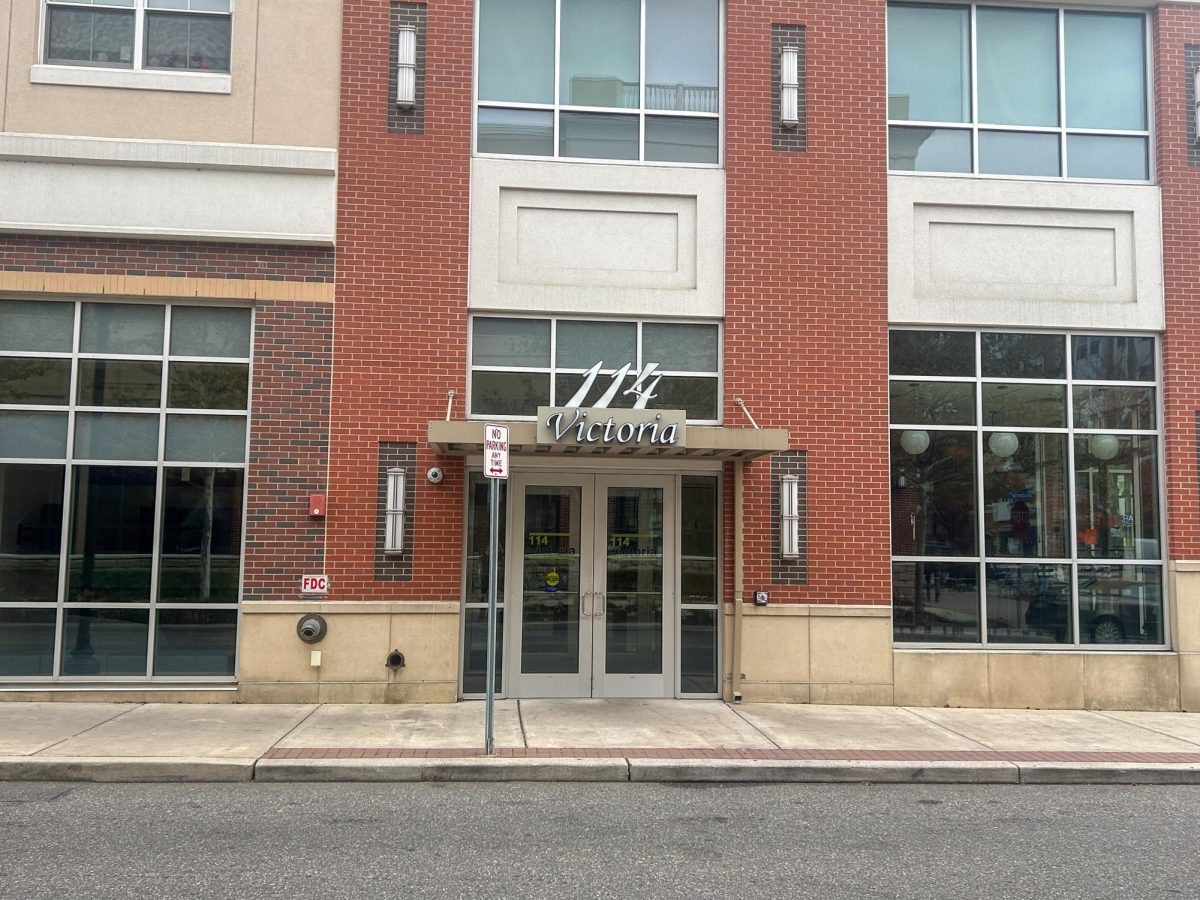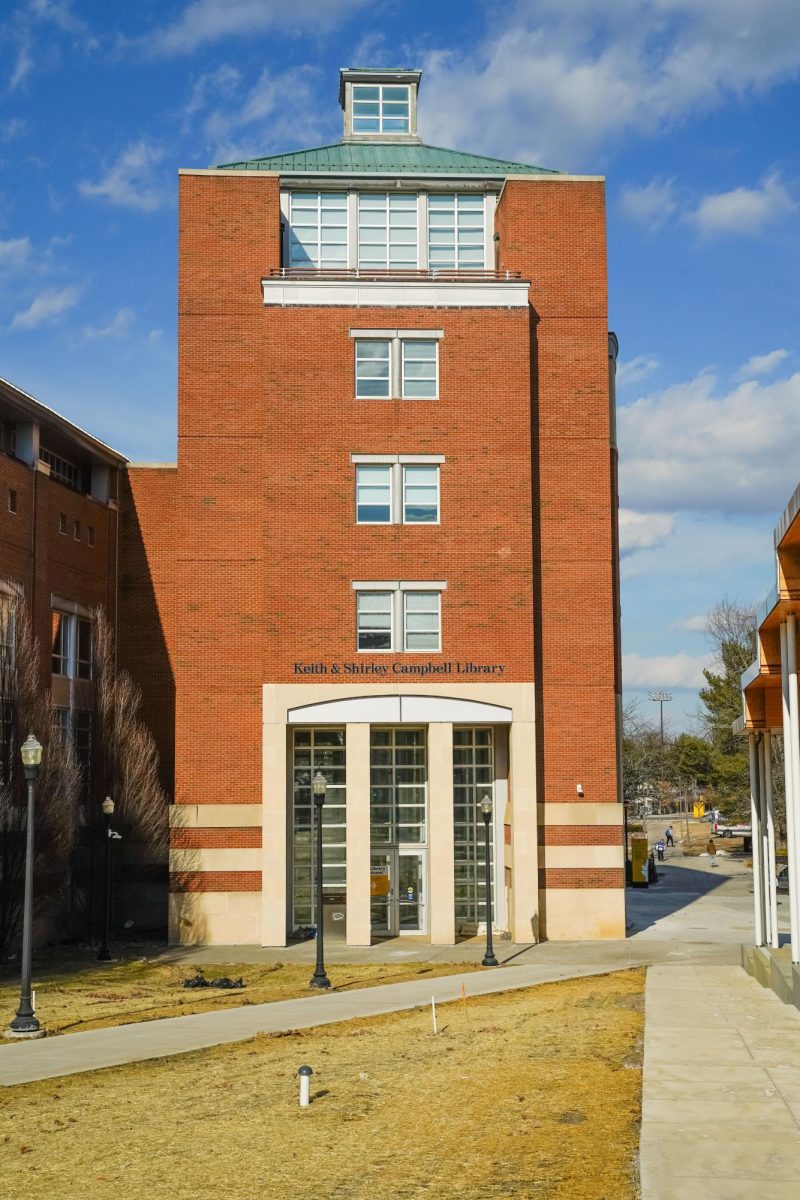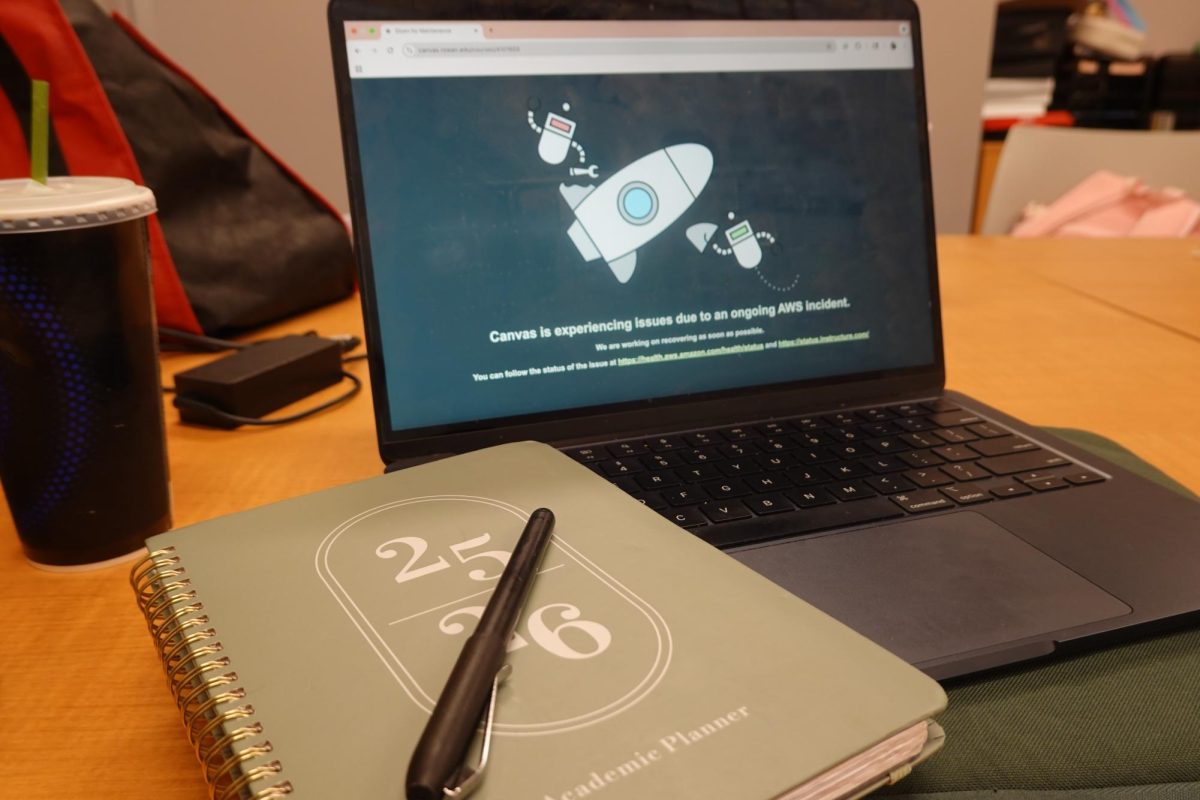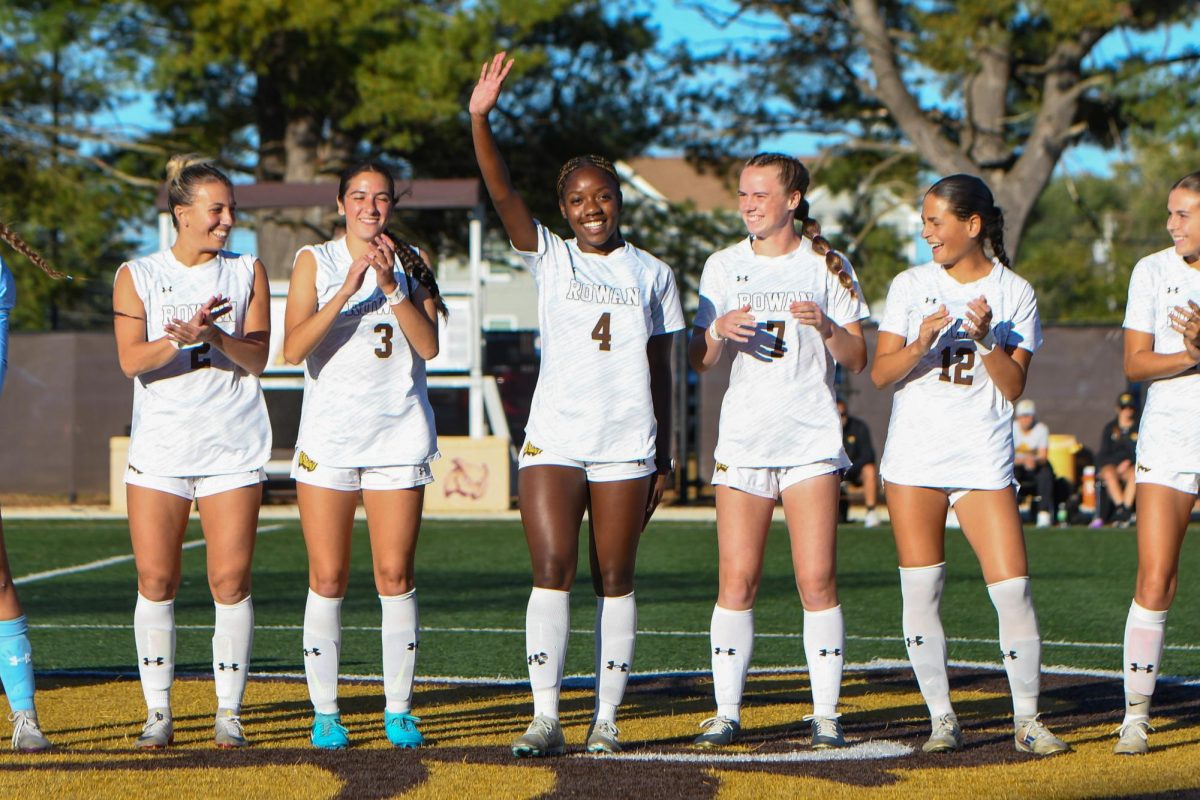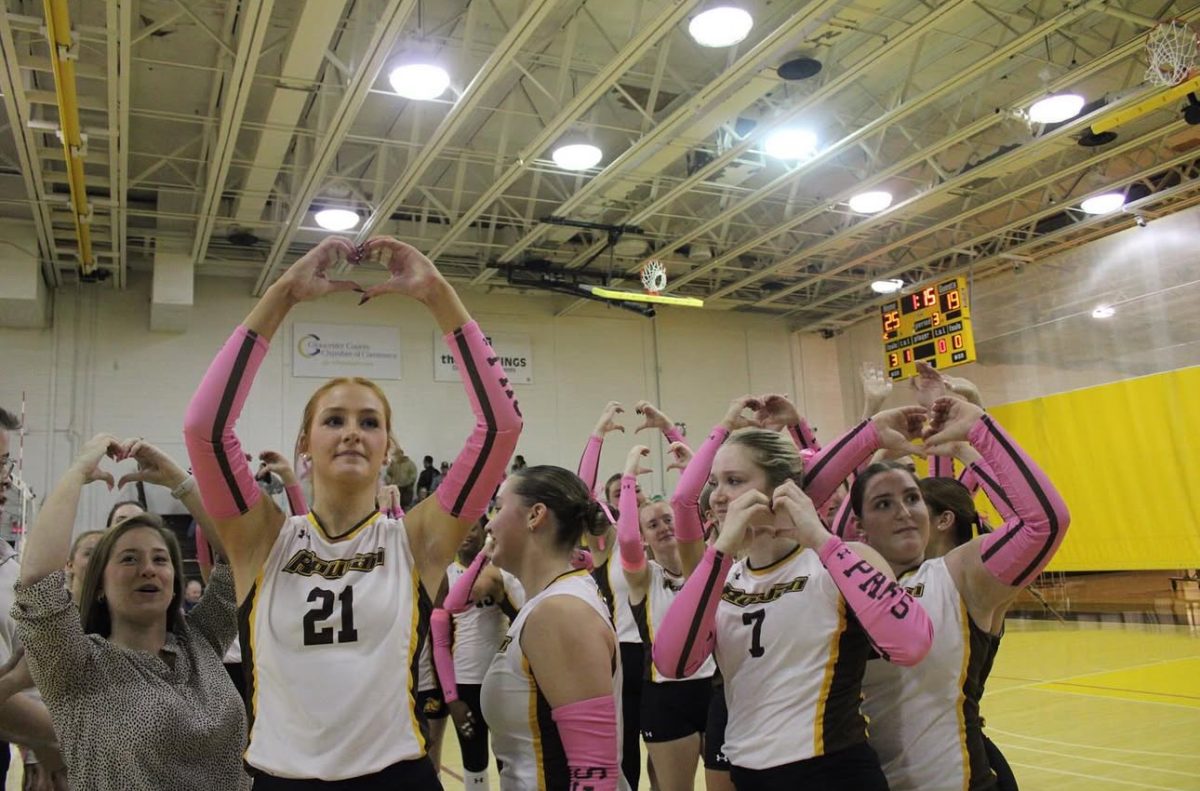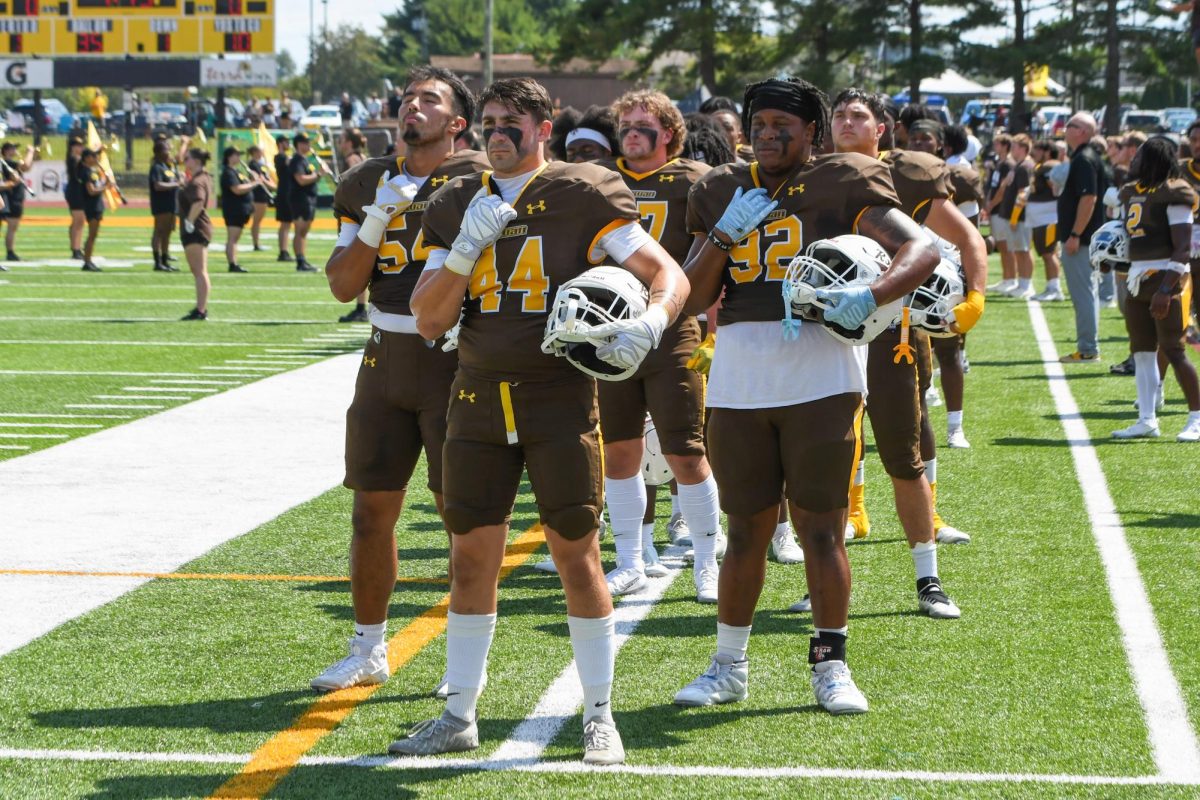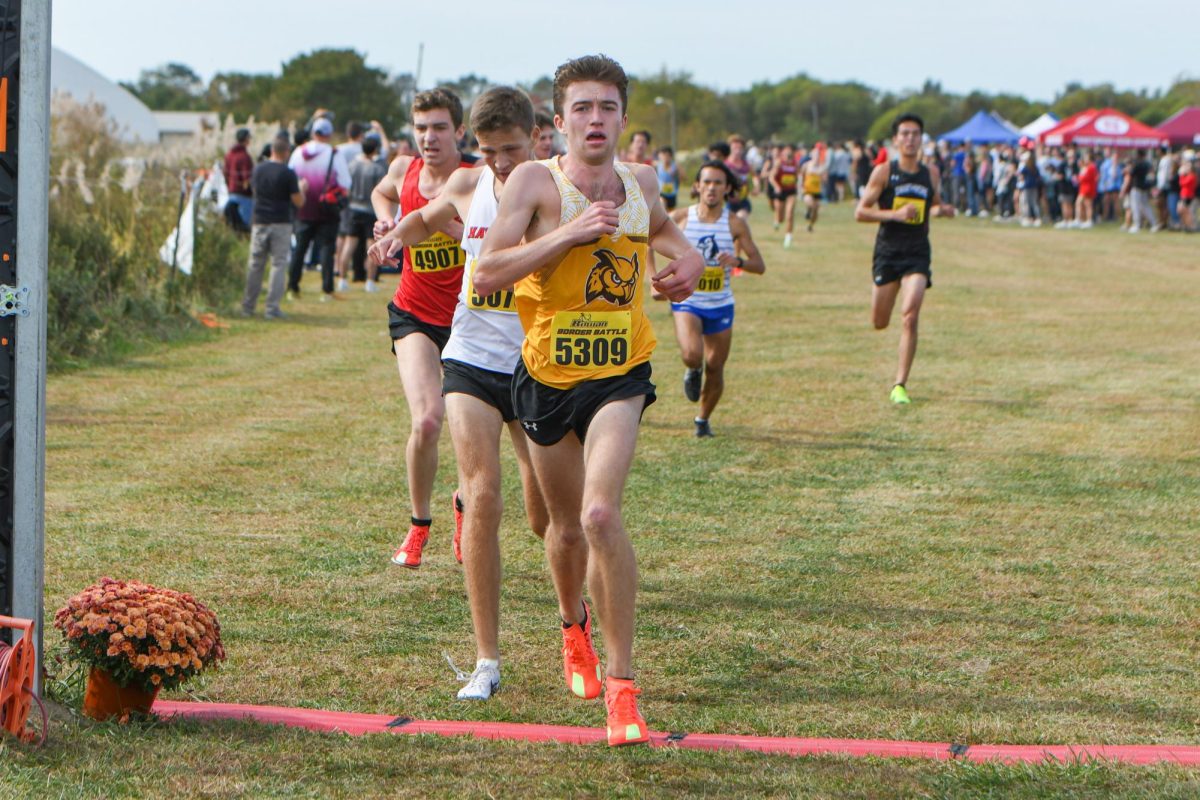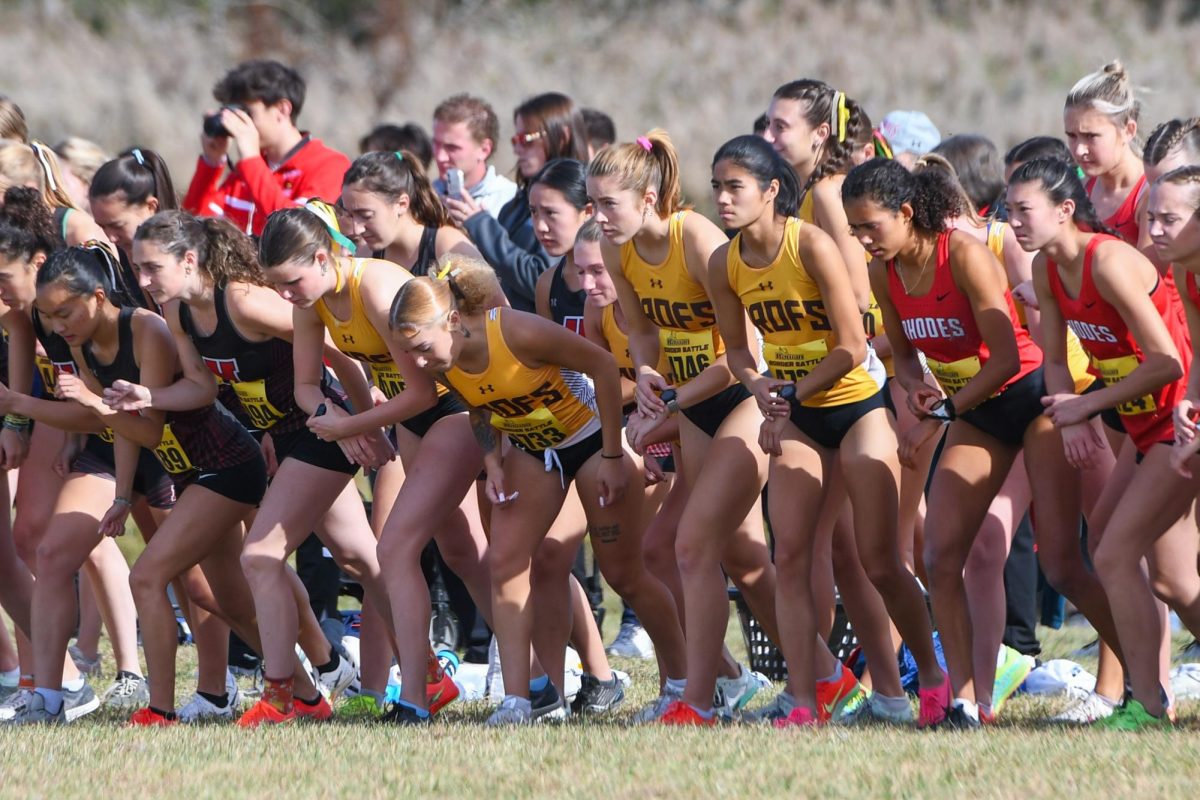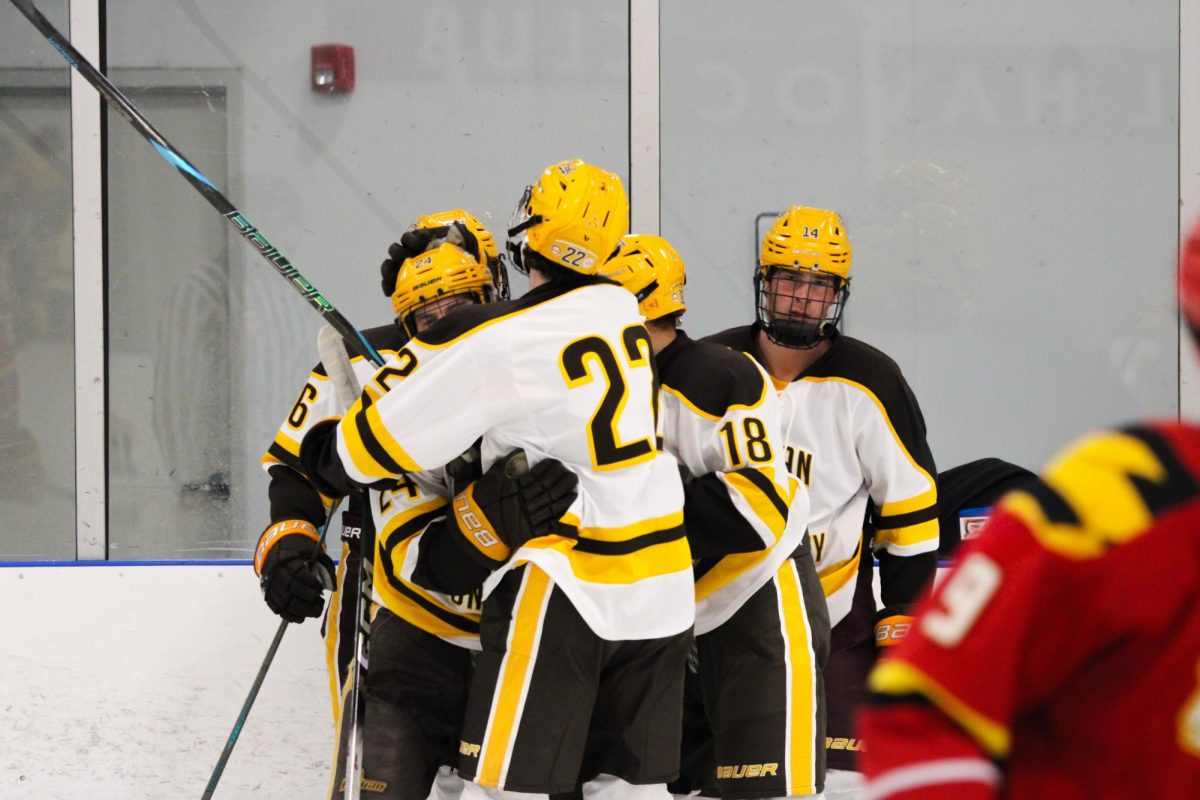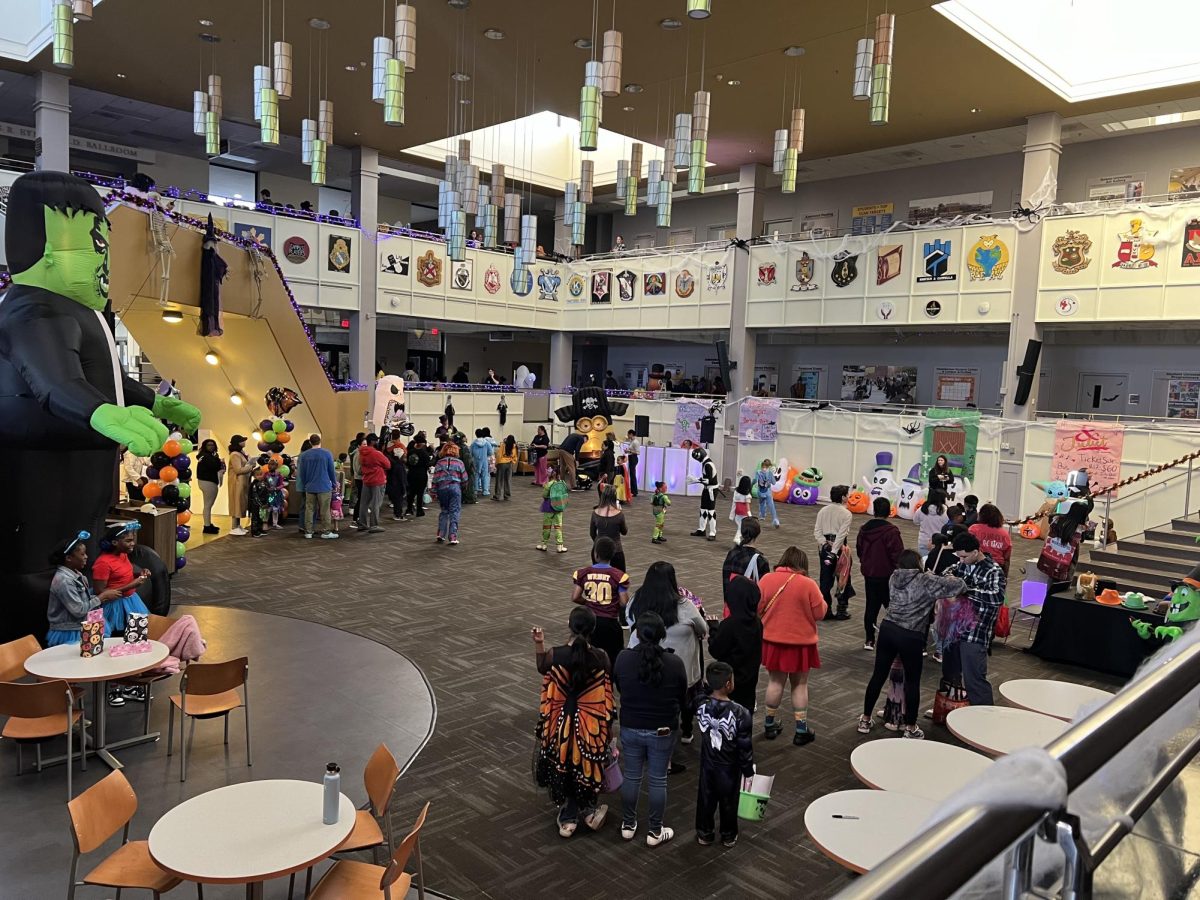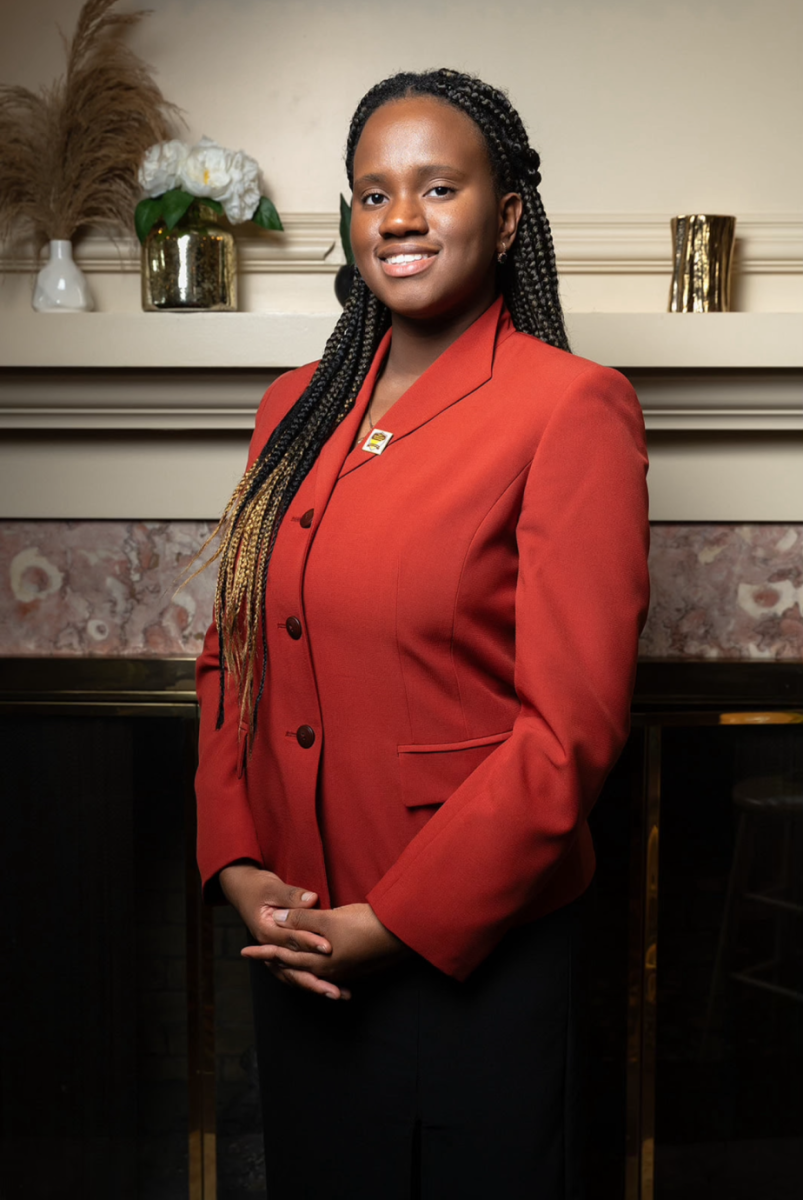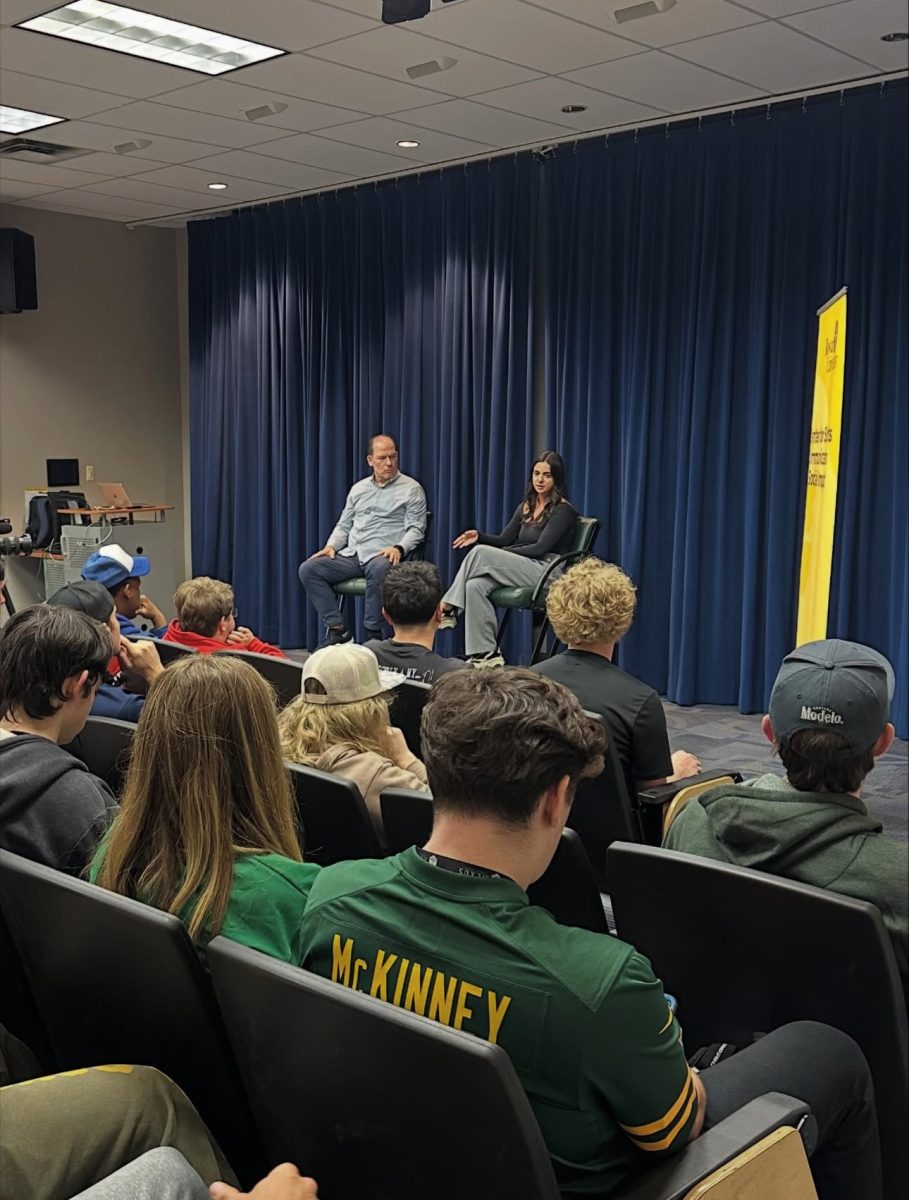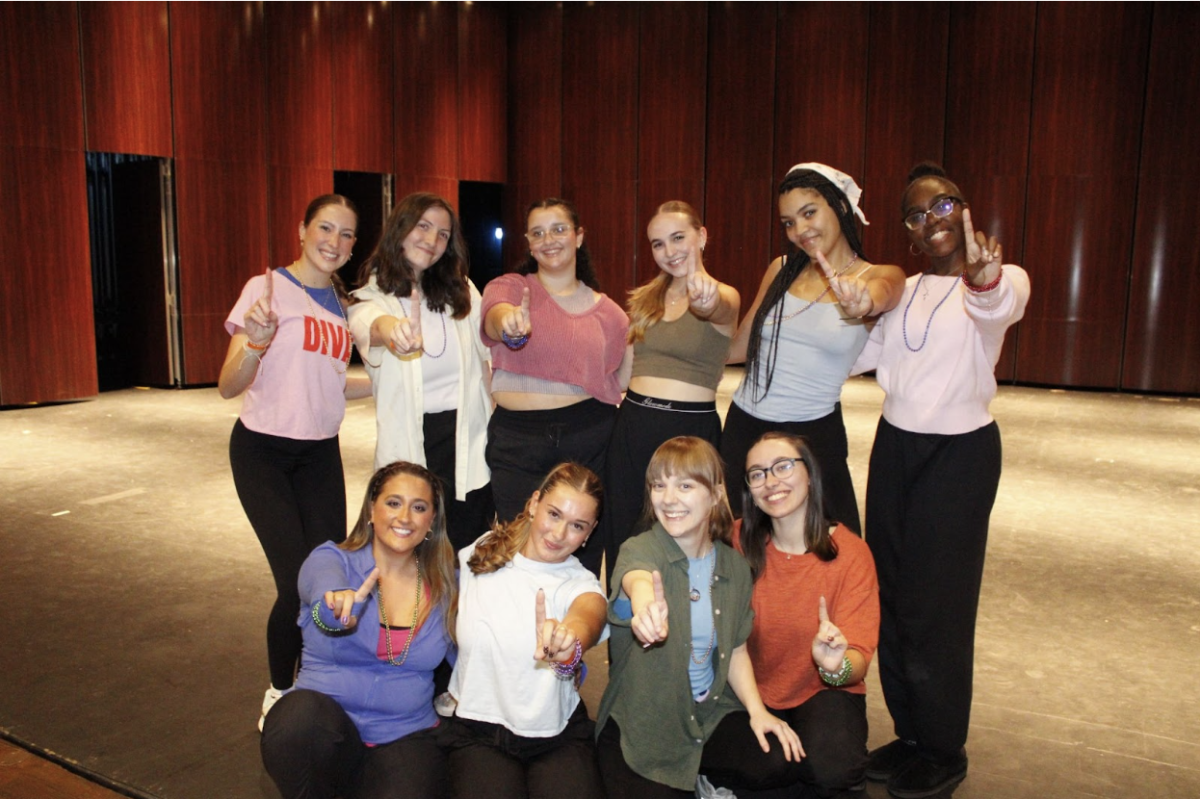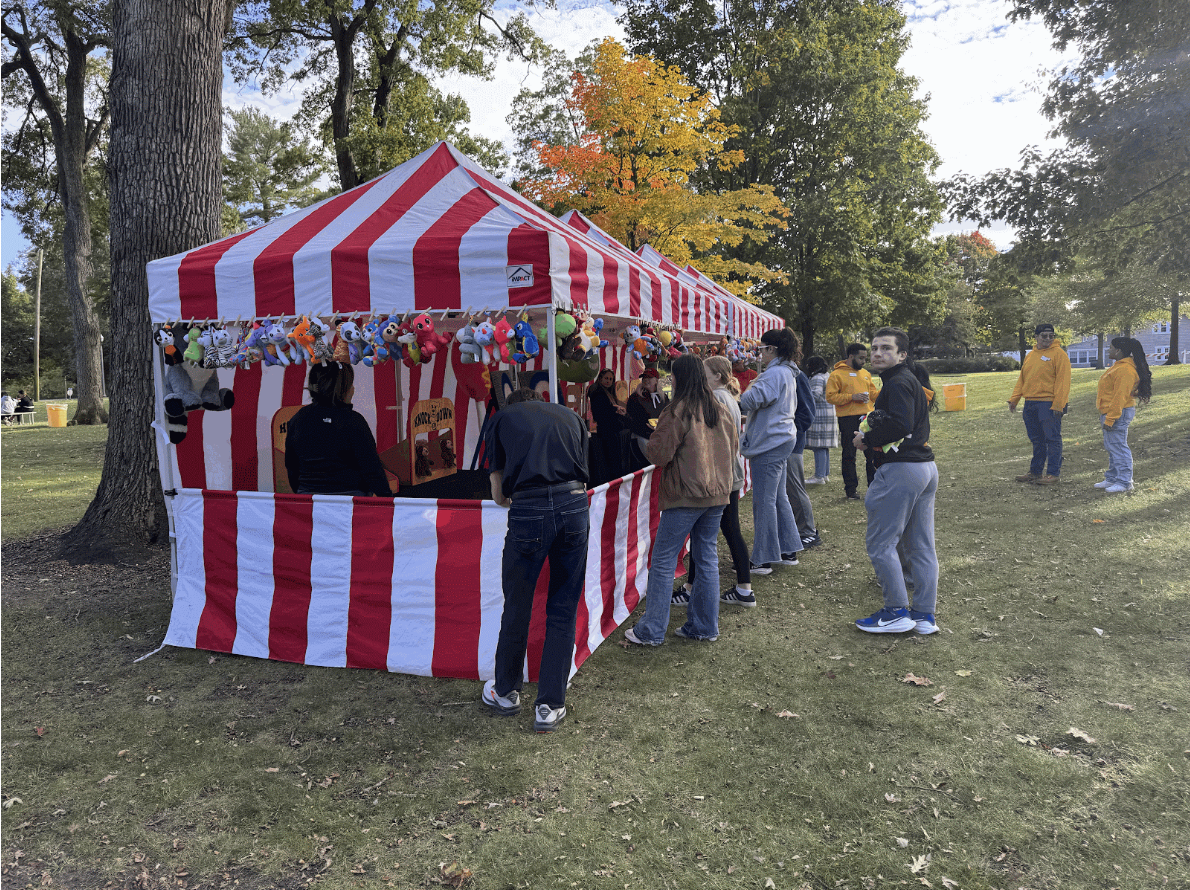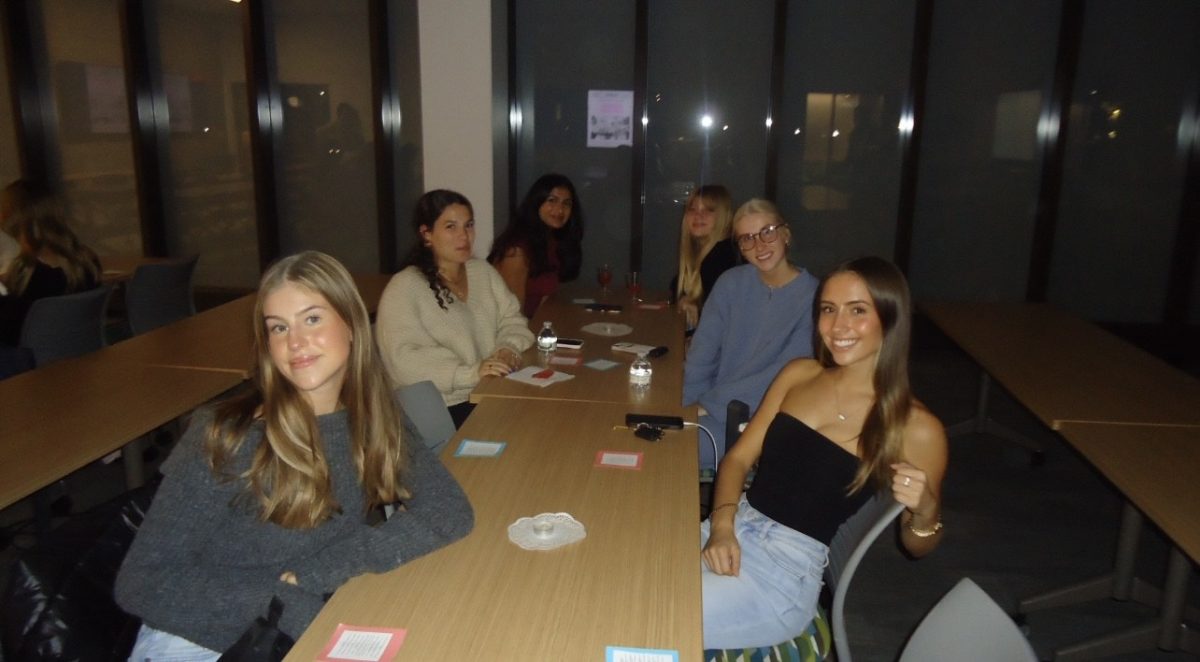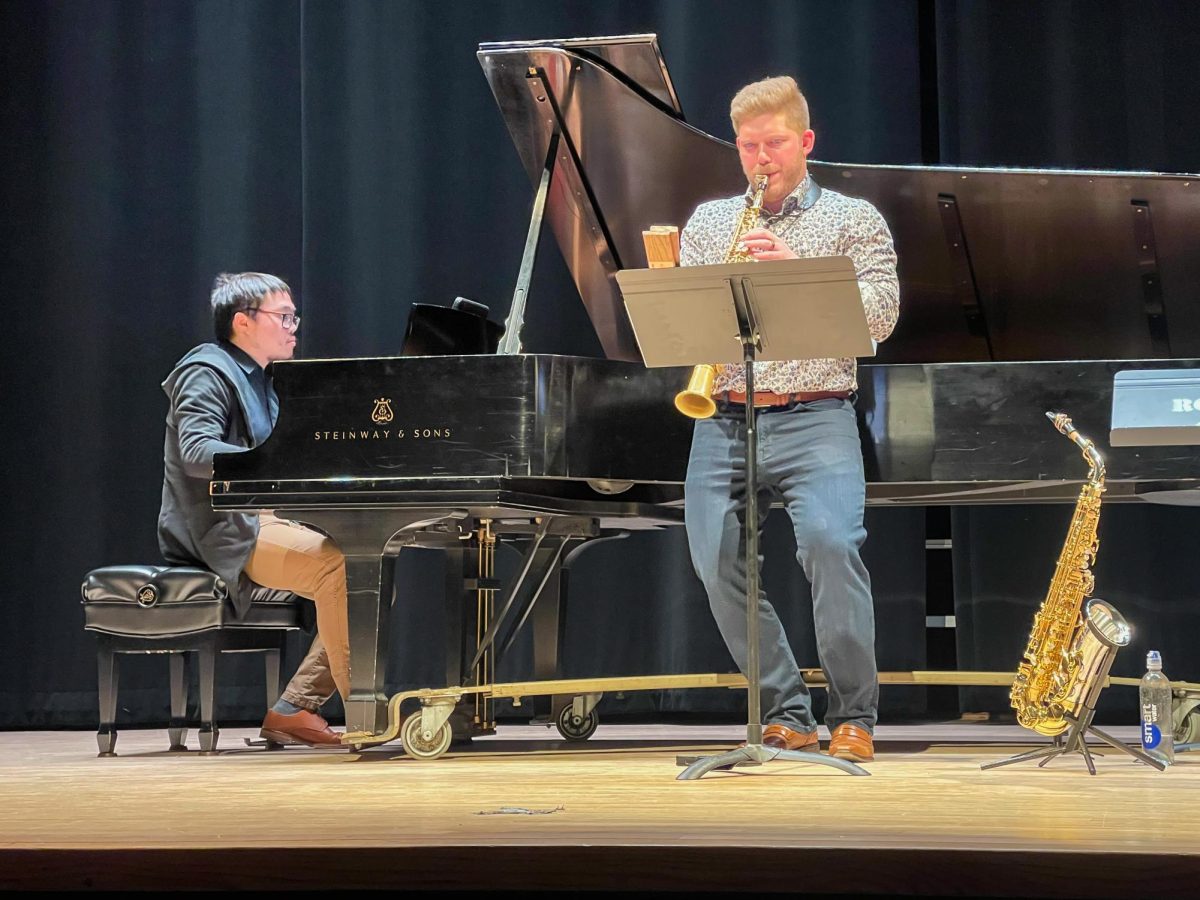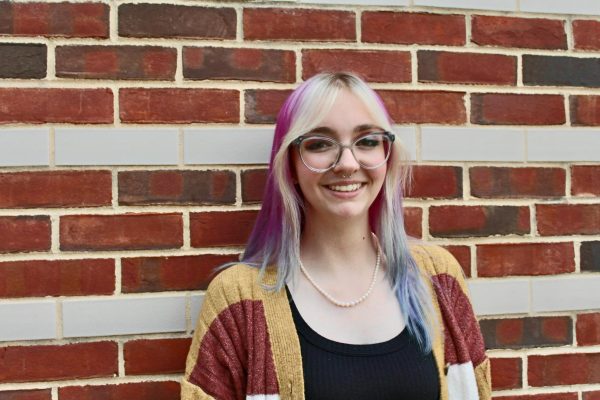Through their collaboration with the “I Exist Project,” soprano saxophonist Nick May and pianist Alex Yi highlight queer stories, and in their expressive performance of “You, Me, Us: A Celebration of Queer Music for Saxophone and Piano,” they gave an audience of listeners something to think about.
Presented in Boyd Recital Hall on Wednesday, Jan. 29, their setlist was honed and featured five works all composed by musicians from the “I Exist Project.” Each piece highlighted parts of the queer experience, ranging from joy to violence, tragedy, and grief.
The opener was “White Socks” by Sebastian Zhang, a transgender musician who composed the piece as a reflection of his first time wearing a tuxedo in a concert. This immediately set the tone for the rest of the night and gave way to Nick May’s characteristic style.
“White Socks,” and by extension the rest of the set, featured long melodic lines full of color and vibrance. In between this flowing waterfall of jazzy composition, he would let out piercing wails on the saxophone.
Next was “Love Obligation,” composed by Keaton Garrett, a piece that shifted the tone of the concert to much more serious considerations.
The music was incredibly discordant and May explained that from the start it featured an underlying drone from the piano, which the saxophone would stray from and clash with.
“[The music] kind of suggest[s] the fight against, and trying to break away from the shackles of modern society,” said May.
The next composition, “Through Every Closet Door” by Tyler Harrison, featured four movements, and before May and Yi began, May warned audience members. The third movement of the piece included simulated gunshots, as a way to memorialize the victims of the Pulse Nightclub shooting and the Club Q shooting respectively.
This multi-movement work began with the vibrance of Motown and jazz, mingling with the sounds of sirens, as if the police were arriving at Stonewall.
Next was an aria in memory of Harvey Milk, a gay man, politician, and former mayor of San Francisco. According to the program notes, he was “a regular at the old Met [Metropolitan Opera].” As such, this work chose to remember him through a sweet yet melancholic movement.
The third movement was characterized by frenetic blasts of the saxophone, splats, and airy tremolo. It seemed as though May was weeping and screaming through his instrument. At the end of this crescendo of emotion, he stomped on the floor and lastly smacked a slapstick together, simulating gunshots.
The final movement, “Rest in Peace,” was a memorial to those who have died of suicide. The piece felt reflective and repetitive, ending without a musical resolution.
Between pieces, May and Yi would stand, and take a bow. “After Through Every Closet Door,” May and Yi embraced in a show of camaraderie and emotion, letting the audience know that the heavy content of their work is not lost on them as a pair of performers.
The last two pieces, “Silence Still = Death” by Nathan Froebe, and Kevin Day’s “Upwelling” were two contrasting pieces. The first focused on the AIDS crisis, and how silence was and is currently used as a weapon against communities afflicted by the disease, allowing them to die.
The final piece, “Upwelling,” felt as colorful as the first. This song, neatly tied together the entire set, representing the “upwelling” of pride that occurs during a pride parade, and the feeling of walking beneath the massive rainbow banner that features at San Diego pride.
After the performance, the audience hurried out of Boyd Recital Hall and into the hallway where May and Yi greeted them. This group was composed of the Saxophone studio at Rowan, a group of students all formally studying the saxophone.
Students asked May and Yi questions and mingled with one another, eventually all congregating in the dance lobby to take a group photo to commemorate the event, which was in part sponsored by the Rowan University Saxophone Club.
Saxophonist and junior music education major Don Szalabofka says that the performance had a very powerful message.
“I thought it was very meaningful and impactful, especially for those that have been affected by the tragic events that occurred that were targeted towards the LGBTQ community,” said Szalabofka.
As a saxophone player, he also says that it’s important that Rowan highlight professional musicians who play the same instrument as he does, serving as professional role models.
“We’re always learning, so it’s very important to have someone that’s been sort of ‘doing the thing’ and going out, playing gigs, teaching, doing shows,” said Szalabofka.
As for May, he spent the day being that role model, working with Rowan’s students.
“We spent the day working with the students and had a workshop talking about kind of a modern contemporary artist’s life,” May said. “And so that was wonderful. We did a master class, got to work with Dr. Evans’ saxophone studio and it was wonderful to just do the ‘saxophone thing’ and talk about, you know, all different types of playing and how to make better music.”
With regards to the recital itself, he stopped at Rowan as part of a larger tour. As such, each day brings unique challenges, since just the day before he was in Baltimore, and before that [place].
“You don’t know what you’re gonna get, so like, for example, we probably do about 30 concerts of this programming a year, [and] today, our train got canceled and we had to figure that out as we woke up,” said May.
May and Yi of course, made it to Rowan in time to work with students and then deliver their powerful recital, which was a part of the Rowan Spotlight Series.
For comments/questions about this story DM us on Instagram @thewhitatrowan or email [email protected]


